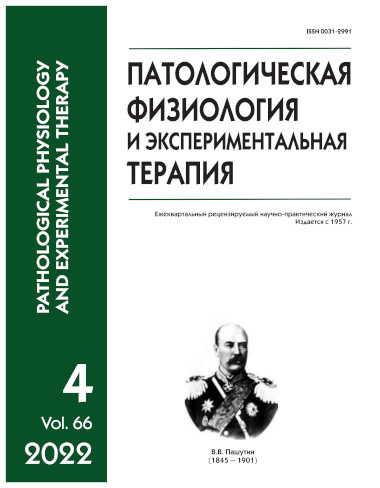Effect of prenatal and postnatal exposure to S100B protein antibodies on the behavior of mice in nesting and juvenile periods of development
Abstract
Models of autoimmune processes in female animals during pregnancy are used to simulate various neurodevelopmental disorders in their offspring. The aim of this study was to investigate the effect of maternal S100B protein antibodies of mice in the prenatal and postnatal periods on the formation of offspring behavior during the nesting and juvenile periods of development. Methods. The study used mice that developed under the exposure to maternal S100B antibodies before birth through the maternalfetal transfer or after birth through the antibody transfer with milk. The behavior of the mice was studied during the nesting and juvenile periods using the tests of Y-shaped maze, elevated platform, tail holding, open field, and elevated cross-maze. Results. The pattern of behavioral disorders depended on the timing of the exposure to S100B antibodies in their ontogenesis. The depressive, non-anxious phenotype in the nesting and juvenile periods of development was associated with prenatal exposure to antibodies. Postnatal exposure to antibodies caused the development of hyperactivity in unfamiliar environments during adolescence. Conclusion. The most probable cause of the observed behavioral disorders is impaired maturation of the serotoninergic system due to changed modulating action of the S100B protein at different stages of brain formation. The results obtained are of great importance for understanding the peculiarities of adaptation to environmental conditions in ontogenesis.






